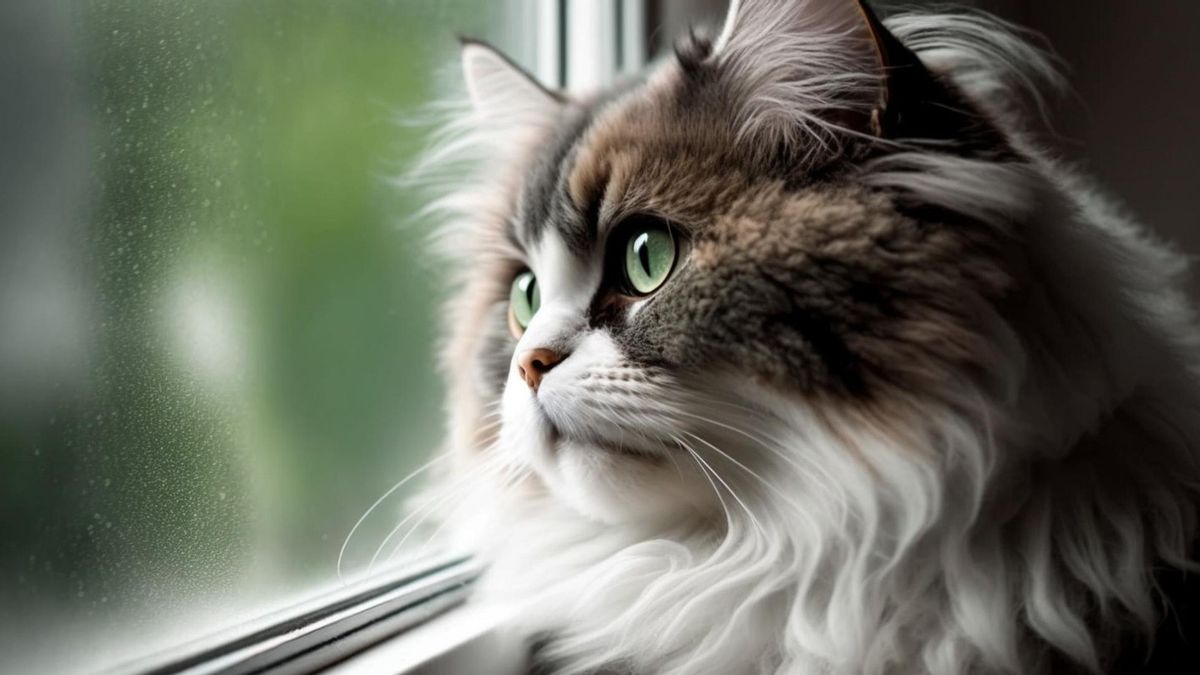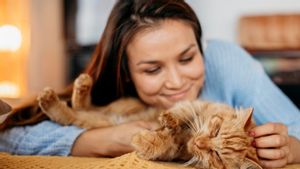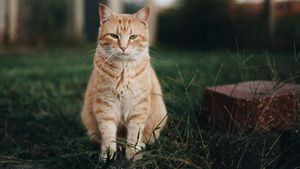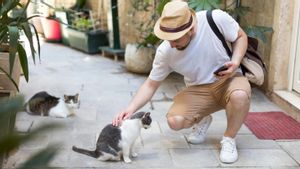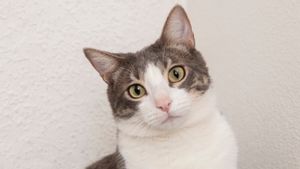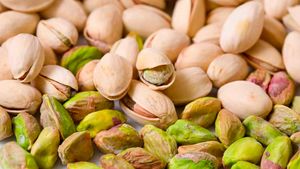YOGYAKARTA For humans, changing seasons requires a strategy to adapt. Like during the dry season wearing thin but comfortable clothes and during changing seasons, warm clothes become close friends. Even so with hairy animals like cats. They can also feel changing seasons and adapt to these changes.
It should be understood, cats are sensitive creatures. Their Indra is much more sensitive than humans. During the multiplier season, temperature, color, humidity level, even changing intensity of light, they adapt to it. Apart from domestic cats or stray cats, they experience behavioral and physical changes in response to the season transition.
Cats will be more active in seasons they find comfortable. When the temperature is right, in the tropics, it is the dry season. They will roll around happily when exposed to the morning sun. Unlike during the rainy season, they will be more sluggish and occasionally roam in the room. Launching PetKeen, Wednesday, February 28, sudden behavior changes may indicate the transition to the season is near. Like cats become easily angry even though they usually calm down. They also prefer to hide in a safe place or prefer to stay indoors or outside the room more than usual.
Keep in mind, not all cats are the same. The response of each cat to the changing season may be different. As a cat owner, it's important to know the character and behavior of your cat at home. This can help identify what your cat needs during these changes throughout the year.
In a season where the temperature is lower, cats tend to eat more. But they will eat less during the transition, including from winter to spring. Changes in your cat's eating habits can also mean their weight increases or decreases rapidly during this transition period.
Seasonal affective disorders may also be experienced by cats, such as those experienced by humans when the temperature season is low or during the day is getting shorter. Cats that experience seasonal affective disorders show signs such as lack of energy or fatigue, drastic changes to their active activities, and anxiety at night.
To overcome this symptom, give the cat the opportunity to bask in the morning or during the day. Or move the cat bed near the window and push the cat to spend time outside. Invite them to play and keep their diet healthy and balanced.
In addition to behavior change, cats also experience physical changes to the transition of the season. This is how cats adapt to changes in their environment. Most notably, the change in fur to adjust to the surrounding temperature.
Cats change hair about twice a year. The old hair of the cat will fall out, then new fur will grow. This change is also influenced by the transition of the season. During the summer transition to autumn, they have the fur to make room for warm thick fur during the winter months.
On the other hand, thick fur will fall out and run out during the summer and shift from winter to spring. Because cats are independent creatures, they usually take care of their own hairs themselves.
SEE ALSO:
However, as 'parents' cats, it is recommended to gently comb over anabul hair during the loss process to get beautiful and healthy fur and to facilitate their new hair growth. During the process of removing this fur, your cat is also advised to eat nutritious foods rich in amino acids, omega fatty acids, and even B vitamins.
Due to changes in air quality and environmental moisture, cats may be prone to skin irritation. It also makes hair fall out and moldy or scibbies. If you see skin irritation, peeling, or excessive itching in your cat, you should consult a veterinarian for recommendations.
That's how cats adapt to changing seasons. As sensitive creatures, change includes a variety of behavior, physical, and mood. So as cat lovers, it's important to pay attention to their needs and adequate care during the season shift.
The English, Chinese, Japanese, Arabic, and French versions are automatically generated by the AI. So there may still be inaccuracies in translating, please always see Indonesian as our main language. (system supported by DigitalSiber.id)
